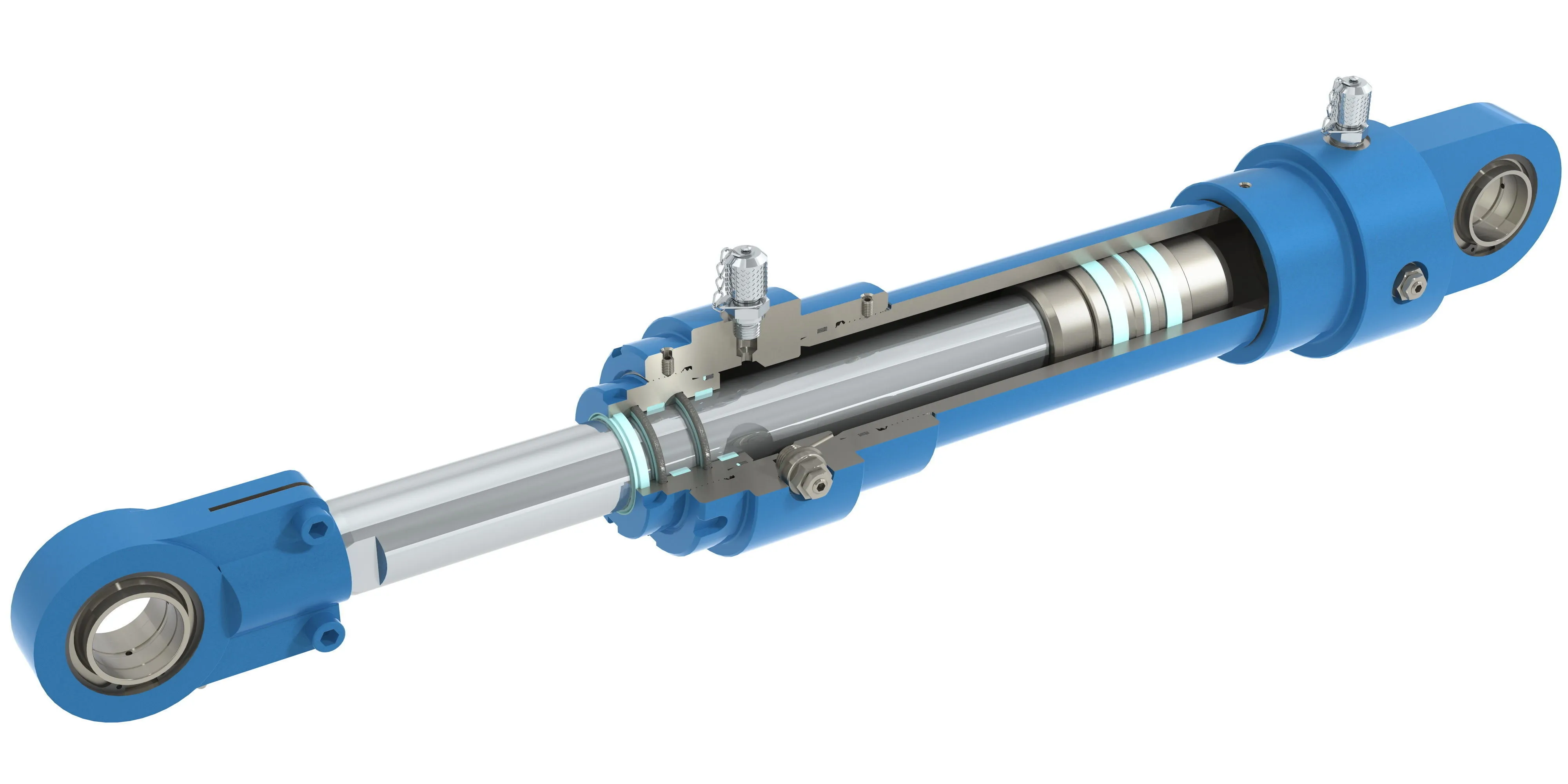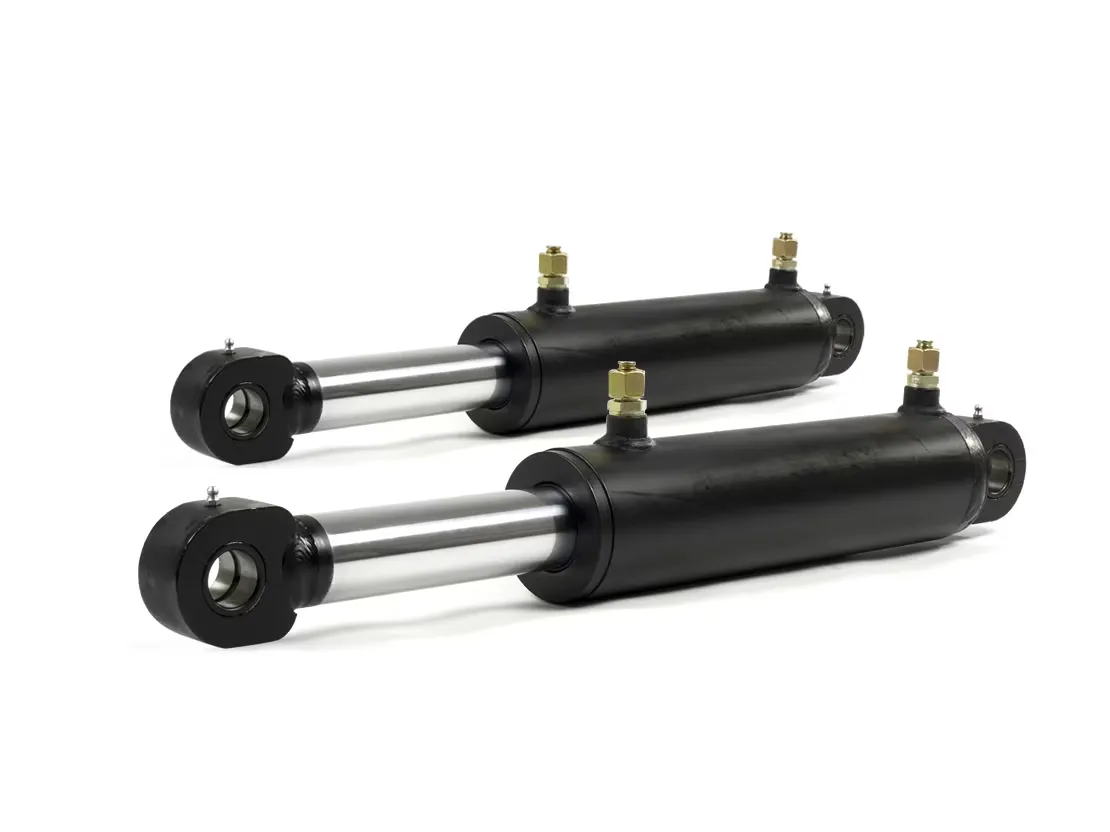Exploring the Versatile Applications of Industrial Hydraulic Cylinders
Understanding the Key Components of Hydraulic Cylinders
Industrial hydraulic cylinders play a crucial role in various industries, serving as essential components in machinery and equipment. These cylinders are designed to convert fluid power into mechanical force, providing linear motion to perform a wide range of tasks.
The Structure of Hydraulic Cylinders
- Cylinder Barrel
- Piston
- Rod
- Seals
Each component works in harmony to generate movement and power within the hydraulic system, ensuring efficiency and precision in industrial operations.
Principle of Hydraulic Cylinder Operation
The operation of hydraulic cylinders is based on Pascal’s Law, which states that pressure exerted anywhere in a confined fluid is transmitted equally in all directions. This principle allows hydraulic cylinders to generate force by applying pressure to the fluid inside the cylinder, causing the piston to move and perform mechanical work.
Control Cylinder Operation Overview
Control cylinders are essential for regulating the flow of hydraulic fluid and controlling the movement of machinery. By adjusting the flow rate and pressure, operators can precisely control the speed and direction of hydraulic cylinders, ensuring smooth and efficient operation.
Types of Hydraulic Cylinders
There are several types of hydraulic cylinders commonly used in industrial applications, each with unique features and advantages:
Single Acting Cylinders
Single acting cylinders exert force in one direction, typically used in applications where the load is constantly supported or where a return spring is used to retract the piston.
Double Acting Cylinders
Double acting cylinders generate force in two directions, allowing for both extension and retraction of the piston. These cylinders are versatile and widely used in various industries for complex tasks.
Telescopic Cylinders
Telescopic cylinders consist of multiple stages that can extend and retract, providing long stroke lengths in a compact design. These cylinders are ideal for applications with limited space and require extended reach.
Differential Cylinders
Differential cylinders utilize two pistons with different diameters to achieve high force and speed ratios. These cylinders are suitable for heavy-duty applications that require precise control and enhanced performance.
Top Five Advantages of Industrial Hydraulic Cylinders
- High Power Density
- Precise Control
- Compact Design
- Reliability and Durability
- Efficient Energy Conversion
Industries Utilizing Industrial Hydraulic Cylinders
Industrial hydraulic cylinders find widespread applications in various industries, including:
Manufacturing
In manufacturing plants, hydraulic cylinders are used in assembly lines, material handling equipment, and robotic systems to facilitate production processes and enhance efficiency.
Construction

In the construction industry, hydraulic cylinders power heavy machinery such as excavators, cranes, and bulldozers, enabling precise movement and lifting capabilities on construction sites.
Mining
Mining operations rely on hydraulic cylinders for drilling, excavation, and material handling tasks, ensuring optimal performance and safety in challenging mining environments.
Agriculture
Agricultural machinery such as tractors, harvesters, and irrigation systems utilize hydraulic cylinders for soil tilling, planting, and harvesting operations, improving productivity and yield in the agricultural sector.
Other Industrial Sectors
Hydraulic cylinders are also used in industries such as aerospace, marine, and automotive, demonstrating versatility and adaptability in a wide range of applications.
Selecting the Right Industrial Hydraulic Cylinder
When choosing an industrial hydraulic cylinder for a specific application, factors such as load capacity, stroke length, bore size, and operating conditions must be considered to ensure optimal performance and efficiency.
Factors to Consider:
- Load Capacity
- Stroke Length
- Bore Size
- Operating Pressure
Maintenance and Care of Industrial Hydraulic Cylinders
Regular maintenance and care are essential to prolong the service life and ensure the reliable performance of industrial hydraulic cylinders. Proper inspection, lubrication, and cleaning practices can prevent downtime and costly repairs.
Installation Guide for Industrial Hydraulic Cylinders
Proper installation of hydraulic cylinders is critical to their functionality and safety. Follow manufacturer guidelines and best practices to ensure secure mounting and alignment for optimal performance.
Maintenance Tasks:
- Cleaning
- Lubrication
- Checking Wear
Fault Diagnosis and Common Problems
Identifying and resolving common issues with industrial hydraulic cylinders is essential to maintain operational efficiency. From leaks and seal failures to rod scoring and piston damage, diagnosing problems early can prevent costly repairs and downtime.
Preventive Measures and Troubleshooting Tips
Implementing preventive measures such as regular inspections, proper lubrication, and seal replacements can minimize potential problems and optimize the performance of industrial hydraulic cylinders. Troubleshooting tips and solutions help operators address issues promptly and effectively.
Choosing the Right Industrial Hydraulic Cylinder
Exploring the factors that should be considered in selecting industrial hydraulic cylinders is crucial to meet the specific requirements of various applications. From load capacity to speed control, understanding the key considerations ensures optimal performance and reliability.
Long-Tail Keywords for Industrial Hydraulic Cylinders
Long-tail SEO articles provide in-depth insights into the benefits and applications of industrial hydraulic cylinders, catering to specific search queries and enhancing online visibility.
Company Overview
Our company is a leading manufacturer and distributor of industrial hydraulic cylinders, offering a comprehensive product line and customized solutions for diverse industrial applications. With professional expertise, international certifications, state-of-the-art production facilities, and dedicated after-sales service, we are committed to delivering high-quality hydraulic solutions to our customers worldwide.

Author: lyl
